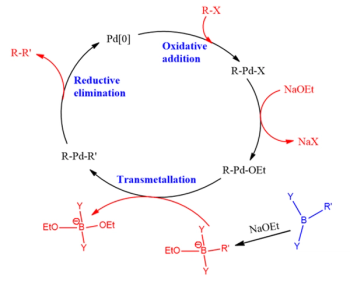
- The Column-02-22-2016
- Volume 3
- Issue 12
Sciex Joins with Children’s Medical Research Institute to Advance Proteomic Profiling
Sciex has announced it is teaming up with the Children’s Medical Research Institute to help equip The Australian Cancer Research Foundation International Centre for the Proteome of Cancer facility with tools to advance its large‑scale proteomic profiling studies.
Sciex (Framingham, Massachusetts, USA) has announced it is teaming up with the Children’s Medical Research Institute (CMRI) (Sydney, Australia) to help equip The Australian Cancer Research Foundation International Centre for the Proteome of Cancer (ProCan) (Sydney, Australia) facility with tools to advance its largeâscale proteomic profiling studies.
These studies will profile thousands of tumour samples per year, enable discoveries around the causes of cancer, provide guidance on cancer treatment options, and work to produce standard operating procedures for other facilities around the world. ProCan will be established with $10 million in seed money from The Australian Cancer Research Foundation to purchase the Sciex equipment.
Chris Radloff, Global Vice President and General Manager of the LC–MS Business at Sciex, said, “Large-scale proteomics studies have great potential to improve our understanding of cancer at the molecular level, but are subject to significant variability caused in sample preparation, data acquisition, and interpretation. Through our partnership with CMRI and the designation of ProCan as a Sciex Centre of Innovation in Precision Medicine, Sciex solutions reduce that variability and enable higher sample throughput, which will help to accelerate cancer research and precision medicine at large.”
Professor Phil Robinson, Head of the Cell Signalling Unit at CMRI and co-developer of ProCan with Professor Roger Reddel, Head of CMRI’s Cancer Research Unit, commented, “Collaborating with Sciex will enable ProCan to accomplish our vision of one day, delivering a proteomics report on every clinician’s desk. The unique industrial proteomics platform we are developing will unlock the potential of our discoveries and empower us to perform the translation research needed to rapidly identify the cause of each individual cancer”
For more information please visit
Articles in this issue
almost 10 years ago
Highly Experienced Method Developer – Really?almost 10 years ago
Discovering the Drug Habits of Nightclubbers and Criminals Using UHPLCalmost 10 years ago
Compositional Analysis of Honeybee Venom for Proteomicsalmost 10 years ago
Vol 12 No 3 The Column February 22, 2016 Europe and Asia PDFalmost 10 years ago
Vol 12 No 3 The Column February 22, 2016 North American PDFNewsletter
Join the global community of analytical scientists who trust LCGC for insights on the latest techniques, trends, and expert solutions in chromatography.




